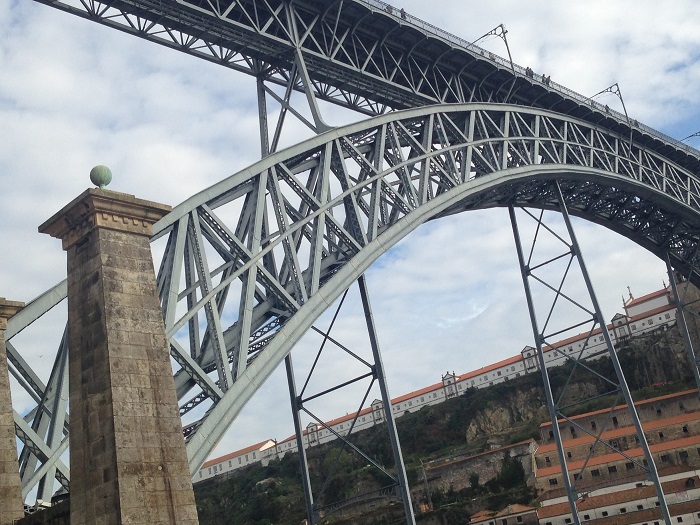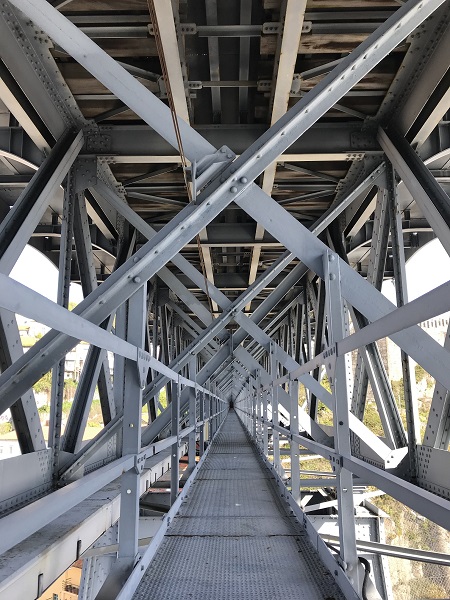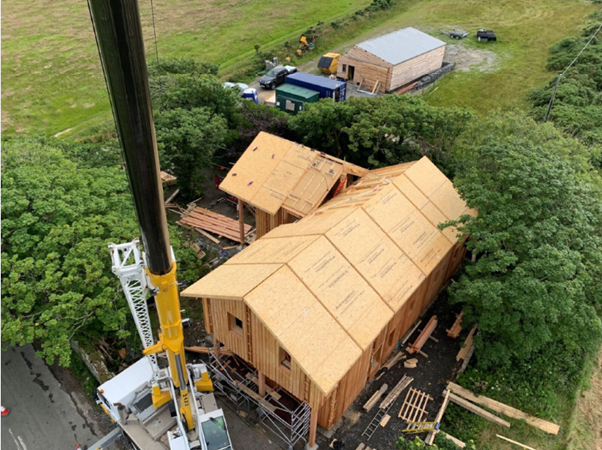The double-decker Luís I
Bridge spans the River Douro between the cities of Porto and Vila Nova de Gaia
in northern Portugal.
The bridge – completed in 1886 and built next to an
adjacent bridge it replaced – consists of complex ironworks with a great arch
and spans 172 metres (564ft) and a height of 44.6 metres (146ft).
The two levels had been designed to carry road traffic
up to 2003 but today is used to carry the Porto Metro light rail on the upper
level and a pedestrian walkway and road traffic beneath.

In 2003-2004 the
bridge underwent a major refurbishment, including steel reinforcement to allow
the installation of the light rail on its upper deck. During this work, the
steel bridge was fully blasted to bare metal and coated with a zinc-free
coating system consisting of two coats of epoxy and one coat of polyurethane
finish, with a total of 290 microns dry film thickness. Sherwin-Williams’
Dura-Plate 301 ultra-tolerant epoxy technology was used.
As part of the new Metropolitan rail network – the
Porto-Gaia crossing – more than 30,000 square metres of original steelwork and
an additional 22,000 square metres of new steel required protection against
corrosion from the aggressive marine environment.

Part of the challenge was the removal of high volumes
of lead-based paint, with deep thickness of maintenance paint applied over a
century, whilst working over a World Heritage Site with high humidity weather
constraints.
To remove the lead-based paint, traditional abrasive
blasting would present acute effects of dangerous waste for those working on it
and environmental issues including the problem of removal of the waste with
expensive transport and management costs as a dangerous substance.
The chosen strategy
for the removal of the paint and preparation was an alternative method using
Ultra High Pressure (UHP) water-jetting in conjunction with an innovative
water-recycling system that enabled the water to be recycled back into the
river as clean water.
The water re-cycling
system was based on a combination of mechanical separation through decantation
and filtration and a special biological filter to absorb any remaining
contaminants.
For the coating system
itself, the ultra-tolerant Dura-Plate 301 epoxy coating system was chosen for
its exceptional durability over water jetted surfaces, due to its tolerance to
damp, flash rusted or low roughness steel surfaces.
With little maintenance needed during this time, the
bridge is in excellent condition. A recent inspection in 2018 found over 97 per
cent of the steel surfaces completely free of corrosion, with up to three per
cent of specific areas showing traces of corrosion not surpassing Ri3 (<1%)
according to ISO 4629-3.
This means less than 0.03% of visible steel surface showing
rust, overall. With spot repair in routine maintenance, the Luís I Bridge will be protected for many years to come
before needing a full refurbishment again. Now about to surpass the high
durability mark (>15 years according to ISO 12944:2018), the expectation is
that the Dura-Plate 301 system will deliver a very high durability (>25
years) performance with a maintenance plan in place.





















